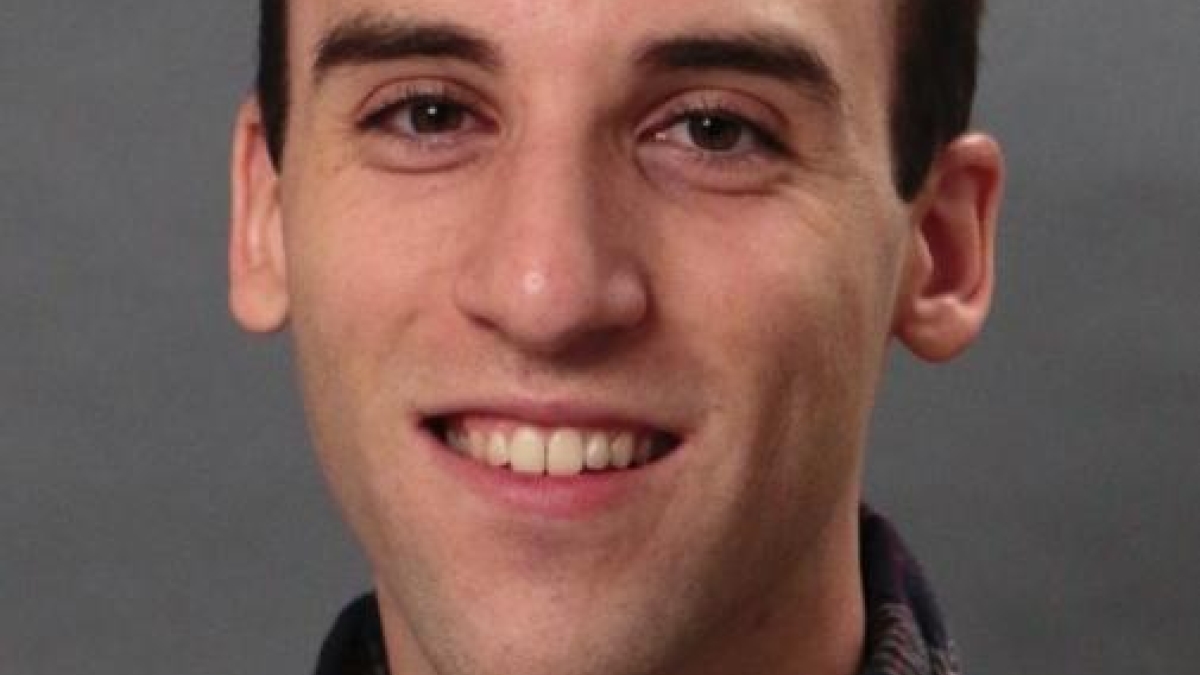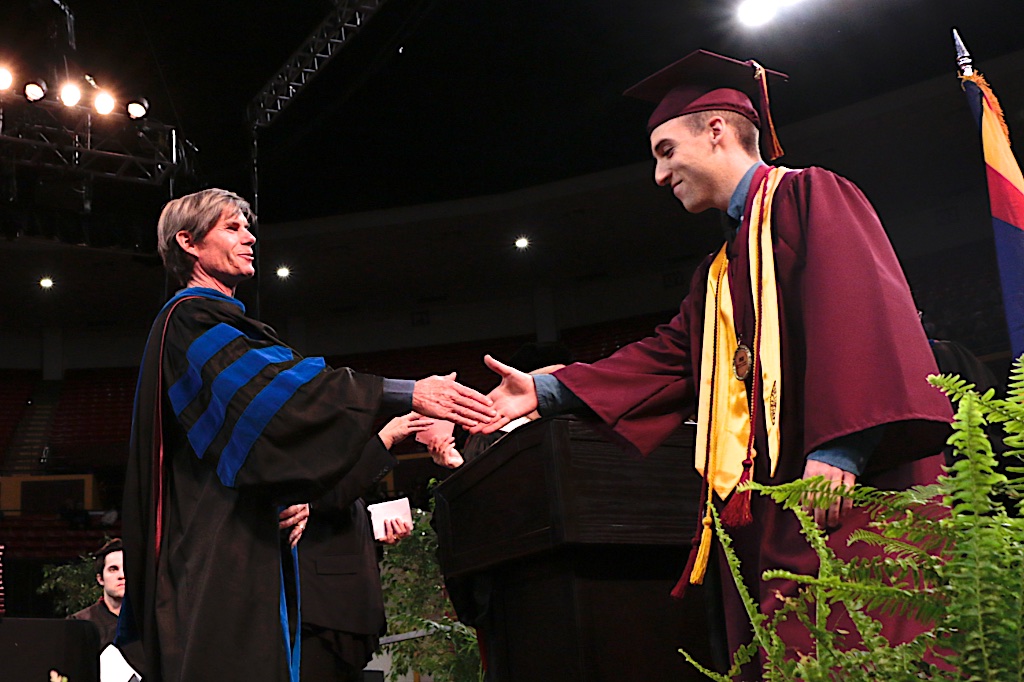ASU triple-major graduate found love of math in economics

Brett Hansen is graduating as a triple major in mathematics, economic, and computer science. Photo courtesy of Rhonda Olson.
Editor’s note: This is part of a series of profiles for fall 2017 commencement. See more graduates here.
Economics led Brett Hansen to mathematics.
The Arizona State University graduate decided to add math as a major while taking advanced courses in economics where they would apply set theory and use rigorous proofs.
“I finally realized the part I really loved was the mathematics,” Hansen said. That led him to become a triple major in mathematics, economics and computer science.
Hansen was selected this fall as Dean’s Medalist for two units in the College of Liberal Arts and Sciences, the School of Mathematical and Statistical Sciences and the Department of Economics.
Hansen was awarded a President’s Scholarship to attend Barrett, the Honors College, and has already authored two papers as an undergraduate research assistant working for Ross Maciejewski’s VADER Lab.
His honors thesis, “The Demographics of Polling Places,” visually mapped the reduced number and questionable placement of polling locations during the latest Presidential Preference election in Maricopa County.
He was also a research assistant for Fernando Leiva-Bertran in economics, where he analyzed the network of patent data in the U.S.
In October, Hansen was a panelist for ASU Math Day and shared with visiting high school students about life as a math major at the largest public research university in the country. He said there was no such thing as a “math person”, and that hard work and persistence were needed to be successful.
Brett Hansen (right) shakes hands with Al Boggess, director of the School of Mathematical and Statistical Sciences at the College of Liberal Arts and Sciences convocation on Dec. 12, 2017. Photo by Rhonda Olson.
Hansen’s hard work was praised by Matthias Kawski, president’s professor in the School of Mathematical and Statistical Sciences.
“Brett took more of the most challenging senior level ‘depth courses’ than are required for the BS in mathematics and excelled in all," Kawski said. "Faculty unanimously commented on Brett’s academic work in the most positive terms.”
Hansen has accepted a position as a software engineer with Amazon in Seattle.
Question: What’s something you learned while at ASU — in the classroom or otherwise — that surprised you, that changed your perspective?
Answer: The camaraderie that forms among students is special. The environment is at the same time competitive and supportive, individual and communal.
Q: Why did you choose ASU?
A: My family was moving to the Phoenix area and I wanted to be near them.
Q: Why is math a great major to pursue?
A: Studying mathematics allows you to explore the reasoning behind many of the basic facts we take for granted in everyday life.
Q: What do you think is misunderstood about math by the general public?
A: I don’t think most people recognize the broadness and diversity of mathematics. It’s more akin to philosophy than arithmetic.
Q: What’s the best piece of advice you’d give to those still in school?
A: Find the subjects that you love. You won’t mind the hours and the work when you’re passionate about what you’re doing.
Q: What was your favorite spot on campus, whether for studying, meeting friends or just thinking about life?
A: My favorite place to study is Wexler Hall, after hours. It always has plenty of open classrooms with white boards.
Q: When not studying, what do you like to do for fun in your spare time?
A: I’m a movie buff and try to see as many as possible in theaters. I also have a recurring game night with friends and enjoy spending time with my family or going hiking with my dog.
Q: If someone gave you $40 million to solve one problem on our planet, what would you tackle?
A: It’s not nearly enough, but every dollar put toward combatting climate change is money well spent. It would be especially effective in the developing world where too often the resources and incentives to make environmentally responsible decisions are scarce.
More Science and technology

ASU professor breeds new tomato variety, the 'Desert Dew'
In an era defined by climate volatility and resource scarcity, researchers are developing crops that can survive — and thrive —…

Science meets play: ASU researcher makes developmental science hands-on for families
On a Friday morning at the Edna Vihel Arts Center in Tempe, toddlers dip paint brushes into bright colors, decorating paper…

ASU water polo player defends the goal — and our data
Marie Rudasics is the last line of defense.Six players advance across the pool with a single objective in mind: making sure that…


